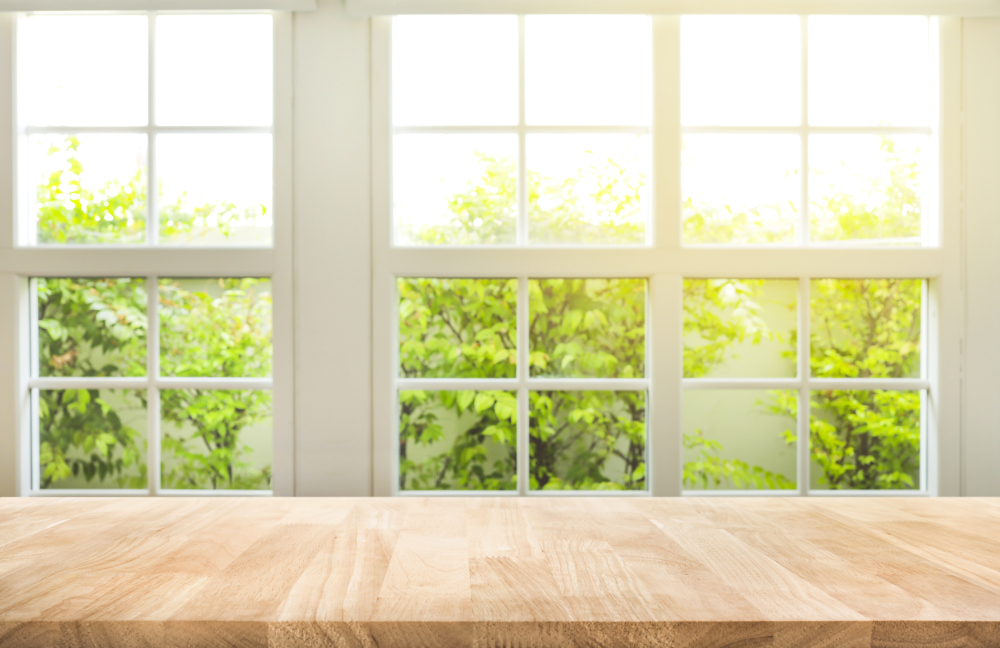How Long Should Windows Last?
Modern windows often come with extensive guarantees, and a fresh set of UPVC frames should last a good 20 years on average. However, windows installed 20 years ago won't be the most efficient as the technology has improved significantly since.
Think you need new windows? Fill out the form below and speak to a local window fitter near you who can assess the condition of your windows and let you know whether you need new ones! For free! Time to complete: 30 seconds.
So how long should your windows last? Much depends on the material you use in your windows, whether they have been professionally installed, and how well they've been maintained - particularly if you have timber frames that are susceptible to dampness and rot. Here we'll run through some of the factors that affect the longevity of your windows and how to pick the most durable options.
How Long Should Windows Last on Average?
The glazing in your windows is, perhaps unsurprisingly, the weakest part of the unit.
Quality frames, correctly sealed, can last from 20 years and up to 50 if they're looked after, and a warranty is typically split into two parts:
One warranty applies to the glazing (usually double-glazing in new windows).
The other applies to everything else, including the locking mechanisms, opening structures and frames.
A warranty normally lasts for about 20 years against the glass, which guarantees that the energy-efficient gas between double-glazed panels won't escape.
It's advisable to avoid new windows with a shorter warranty since 20 years is the industry standard.
The fine print on your warranty paperwork is well worth reading through carefully.
Some window fitters cover all the replacement parts for the glass and the entire unit if it starts to fail but exclude the labour and installation costs.
Get quotes for new windows
See how we work below.
How Long Should Wooden Windows Last?
Timber frames have become less common given that UPVC is cheaper and tends to last longer, but you'll still get a warranty of 20 years on a good set of wooden frames.
The trick is in the maintenance. If you repaint a wooden window every year or two, the timber will remain protected from water and deterioration.
Incorrectly fitted timber frames are the most likely to become damaged, so if the frame rots, warps or shifts, the windows require replacement.
In contrast, the failure of a double-glazing seal in another window might mean swapping only the glass.
How Long Should Aluminium Windows Last?
Aluminium frames aren't as common as UPVC or timber, but they're pretty low maintenance.
Although we associate metal with corrosion, aluminium is rust-resistant, so as long as you keep it clean and free of dampness, your frames should keep that factory finish look.
Most aluminium windows have a warranty against the frame and the paint if you go for a custom colour.
The caveat is that metal conducts heat, so aluminium windows can be less energy efficient and have a limited lifetime guarantee.
How Long Should UPVC Windows Last?
UPVC is the most common and affordable window material and is very low maintenance.
You can select coloured UPVC, but you should examine the warranty if you do.
Deeper colours can mean the frame heats and warps more easily, so paint maintenance can be a bigger problem than any wear and tear to the frame itself.
If you keep your UPVC windows clean and in good shape, they can last for decades.
Signs That You Need to Replace Your Windows
If you're looking into how long your windows should last because you're considering replacing them, a few indicators signal that the frames aren't working well.
Common problems include:
- Cracks, chips or breaks in the glazing on either pane.
- Dampness and water leakage or condensation inside your window.
- Cold draughts and lower air temperatures near the windows.
Even if your windows are within their warranty period, they can still become ineffective.
For example, foundations shift naturally over time and might mean that a relatively new frame has moved and broken the double-glazing seal.
Checkout this video which shows the different signs that indicate it might be time to replace your windows:
Choosing Long-Lasting Window Materials
Ultimately, your choice of windows will rely on the age and aesthetic of your property and how much you have available to spend.
Timber is a great choice for older homes and can look stunning - although you need to factor in the costs and time required to clean the timber and varnish it regularly to keep it in optimal condition.
UPVC is the most durable option, as the material is low maintenance, weatherproof, and protected from rot and corrosion.
One alternative could be to pick a UPVC window with a timber effect finish, which looks close to authentic wood but without the upkeep requirements.
Frequently Asked Questions - How Long Should Windows Last?
Let's answer some of the most typical questions about the average lifespan of a set of windows.
How Can I Make Sure My UPVC Windows Last as Long as Possible?
As we've discovered, UPVC doesn't require much maintenance and remains highly energy-efficient for years.
If you're keen to maximise the lifespan of your windows, it's best to wipe the frames down with a cloth and soapy water now and again, along with oiling the moving parts in the frame.
Signs of condensation are best dealt with quickly to identify whether it's a case of having too much moisture in your property or an issue with the double-glazing itself.
Do I Need to Repair Double-Glazed Windows if They Become Misted?
Misted windows are double-glazed units where the seal has failed. It's called misting because the water collecting inside the window unit looks a bit like a mist or fog.
Sometimes, a window fitter can replace the glazing and leave the frame in situ provided it's still in good shape - but in others, they might need to replace the whole window unit.
Is it Best to Replace All My Windows at the Same Time?
It's tricky to know whether to replace all glazing simultaneously or focus on those specific windows that aren't performing well.
If you have the budget, it makes sense to replace all of your windows because they were likely fitted at the same time - if a few have started to fail, the others will follow suit soon.
The benefit is that there are cost efficiencies whereby you get a better price per window if you're buying more than one, and the overall labour cost will be less per unit.
Get quotes for new windows
See how we work below.


